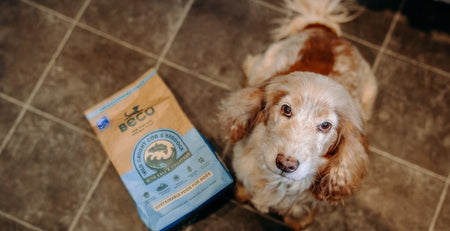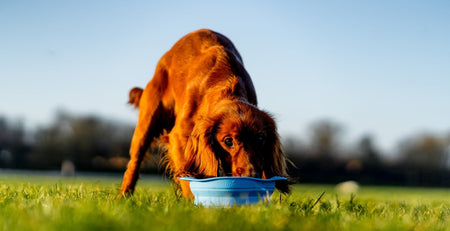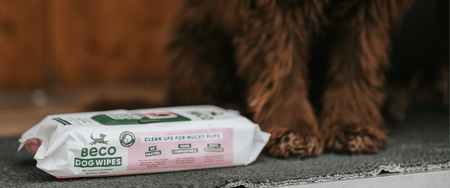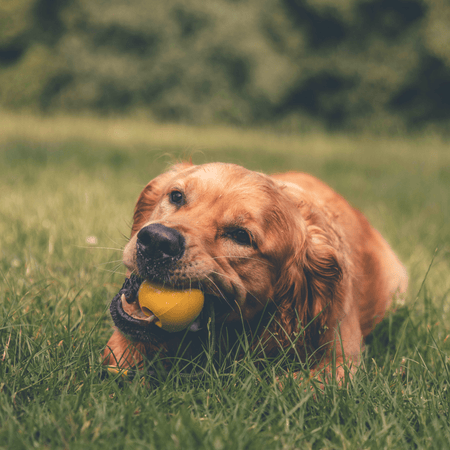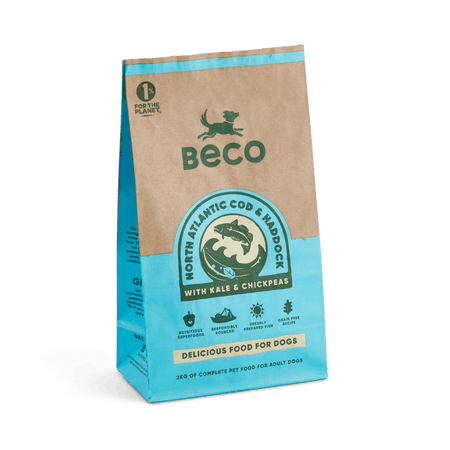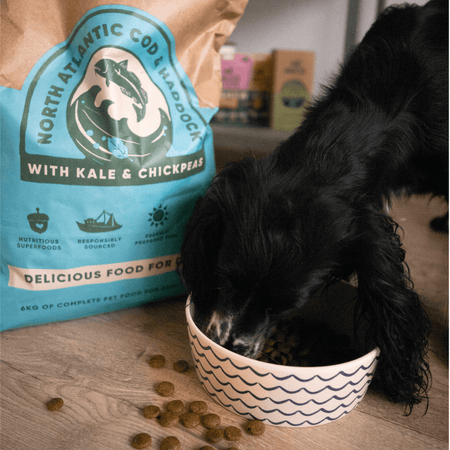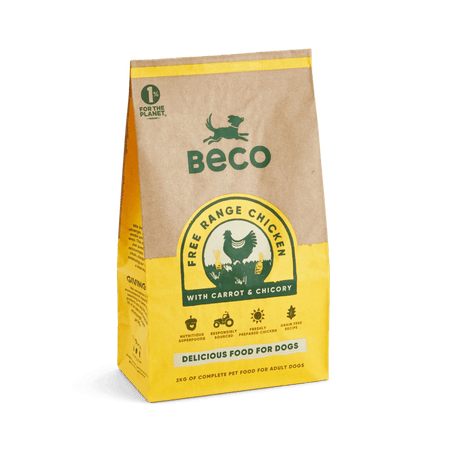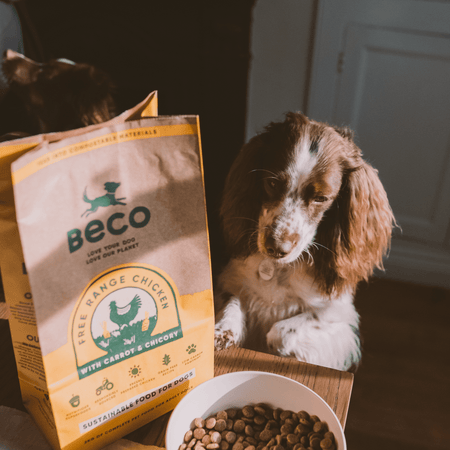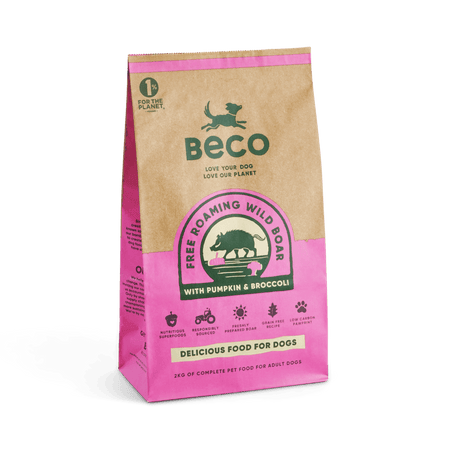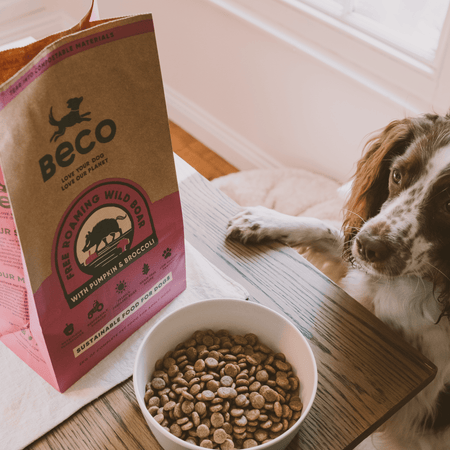Your senior pup isn't just ageing - their nutrition is changing. Muscle mass drops. Metabolism slows. Appetite wanes.
Feeding an older dog is all about fueling their golden years with love and quality food.
If you’re confused, don’t worry, we have the expert answers. We’ll cut through the confusion, showing you exactly what to feed an older dog to keep them thriving, not just surviving.
- Tailor your senior dog's diet to support ageing, weight management, and health issues like arthritis or kidney disease.
- Older dogs often need fewer calories but more protein to maintain muscle mass and energy levels.
- Grain-free options can benefit senior dogs with allergies or sensitivities, but consult your vet first.
Nutritional Needs of Senior Dogs: What’s Different?
Just like humans, as dogs age, their bodies go through changes. These changes affect everything from metabolism to muscle mass.
Senior dogs may need fewer calories, higher-quality proteins, and specific nutrients to support their joints, skin, and cognitive function.
Understanding what to feed a senior dog starts with understanding these needs:
Lower Calories
It’s not unusual for older dogs to have lower energy levels and a slower metabolism. To avoid weight gain and obesity, it's important to feed them fewer calories than when they were younger.
High-Quality Protein
As dogs age, muscle loss becomes a concern. High-quality proteins (think chicken, turkey, or fish) help preserve muscle mass.
Joint Health
Ingredients like glucosamine and omega-3 fatty acids support joint health, keeping your dog moving with ease.
Cognitive Function
Antioxidants like vitamin E, vitamin C, and omega-3 fatty acids (found in fish oil) can help to keep their mind sharp.
Easily Digestible Food
Older dogs can have sensitive stomachs. Look for foods that are gentle on the digestive system.
Finding The Best Senior Dog Food
Different dogs have different needs, but look out for these characteristics when choosing food for your senior dog.
1. Best Protein for Senior Dogs
Look for high-quality protein sources such as chicken, turkey, lamb, or fish. These proteins help maintain muscle mass as your dog ages. Avoid low-quality fillers or by-products.
2. Calorie Dense
Wondering what to feed your older dog if they are losing weight? Try calorie-dense kibble packed with healthy fats.
Foods with added protein and fat boost their energy and support weight gain. Senior dogs sometimes lose their appetite, so look for food with strong flavour appeal, like wet food or home-cooked meals.
3. Wet or Dry Food?
Debating which is best for senior dogs? Both have benefits.
Wet food is easier to chew and digest, great for older dogs with dental issues. It’s also packed with moisture, which helps keep your dog hydrated.
Dry food is great for dogs who need help with tartar control, as the crunch helps keep teeth clean.
4. Grain-Free Dog Food
Grain-free food for senior dogs is popular, especially if your pup has sensitivities or allergies. Many senior dog foods are grain-free, using healthier alternatives like sweet potatoes or peas as carbohydrates.
But before making a switch, talk to your vet, especially if your dog has any existing health conditions.
What to Feed an Old Dog That Won’t Eat
If your senior dog’s appetite is dwindling, it’s time to pay closer attention to their meals. Here’s what to do:
-
Try Warming the Food: Sometimes, a warm meal can increase the smell and encourage eating. It’s especially helpful for dry kibble.
-
Wet Food: If your dog won’t touch dry food, switch to wet food or even mix it into the dry food to make it more appealing.
-
High-Protein Treats: For picky eaters, consider supplementing their regular meals with protein-rich treats.
If your pup still refuses dog food there are plenty of healthy options that can provide extra nutrition. These include:
-
Boiled Chicken: Lean chicken is easy to digest and can tempt a finicky eater.
-
Pumpkin: Full of fibre and vitamins, it’s great for digestion and overall health.
-
Carrots: Raw or cooked, carrots are a crunchy, low-calorie snack that promotes dental health.
Don’t be tempted to give them your favourite treats as foods such as chocolate and grapes are toxic to dogs.
Difference Between Senior Dog Food & Regular Dog Food
The main difference between senior dog food and regular dog food lies in the nutritional profile.
Senior dog food is formulated to support ageing dogs' unique needs:
-
Fewer calories to prevent weight gain
-
Easier-to-digest ingredients to accommodate a slower metabolism
-
Joint health supplements like glucosamine to support ageing joints
-
More fibre to aid digestion and prevent constipation
If you’re still feeding your dog regular dog food after they’ve entered their senior years, it might be time to switch.
Senior Dog Diet Food: What To Look For
Generally, these are beneficial ingredients to look for when choosing food for your senior pup:
-
Protein: Ensure that the protein comes from high-quality sources.
-
Fats: Look for moderate fat content to avoid weight gain.
-
Fibre: High fibre content is good for digestion.
-
Supplements: Glucosamine, chondroitin, and omega-3s for joint support.
-
Antioxidants: Essential for protecting ageing cells and boosting the immune system.
| Food Type | Benefits for Senior Dogs |
|---|---|
| High-Quality Protein | ✅ Muscle maintenance |
| Omega-3 Fatty Acids (e.g., fish oil) | ✅ Joint health |
| Fiber (e.g., sweet potato, pumpkin) | ✅ Digestion |
| Probiotics | ✅ Healthy gut |
| Grain-Free Food | ✅ Less food sensitivities |
| Wet Dog Food | ✅ Easy chewing |
| Dry Dog Food | ✅ Dental health |
| Antioxidants (e.g., blueberries) | ✅ Immune support |
Frequently Asked Questions
Do dogs eat less as they age?
Yes, as dogs age, they often eat less. This is usually due to slower metabolism, changes in taste or smell, dental issues, or even medical conditions.
What is the best food for a 13-year-old dog?
At 13 years old, your dog is likely in their twilight years. Focus on foods that provide maximum nutrition without overloading them with calories. Look for high-quality protein to maintain muscle mass and food that support joint health.
What’s the healthiest dog food for senior dogs?
When looking for the healthiest dog food for senior dogs, focus on quality ingredients. Choose a dog food brand that uses whole meat as the first ingredient, doesn’t rely on fillers and has added vitamins, minerals, and fatty acids for joint and skin health
Conclusion
Feeding your senior dog requires thoughtful adjustments to match their changing needs.
From adjusting calorie intake to increasing protein for muscle maintenance, the right nutrition makes a significant difference in their quality of life.
Whether you choose wet food for easier chewing, grain-free options for sensitive tummies, or supplements for joint support, the key is selecting high-quality ingredients that serve their specific requirements.
Shop our range of grain-free dog food, perfect for dogs of all ages including your senior companion. From our Free Range Chicken blend rich in protein to our gentle Wild Caught Cod & Haddock recipe, ideal for sensitive digestions, there's a perfect option for your older friend.

